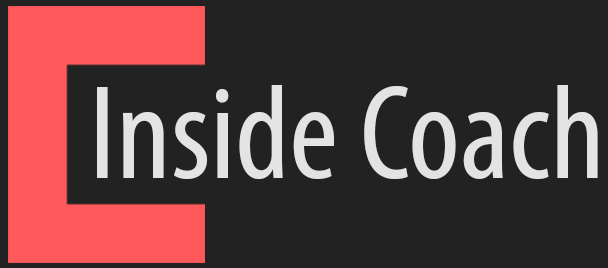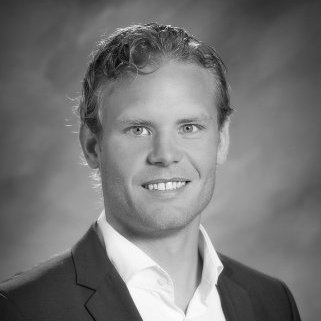Interview with Vincent from Accenture Strategy
Vincent worked at Accenture Strategy from 2010 to the beginning of 2015. Before Accenture, Vincent obtained a bachelor degree in Economics and a Master degree in International Economics and Business from Utrecht University. Vincent also went on an exchange to the University of California San Diego for additional business courses. Besides his studies, Vincent competed on a national and European level at water polo competitions. Vincent recently made the decision to become a full time entrepreneur, and is currently involved in several entrepreneurial initiatives.
Thank you Vincent for this interview!
Experiences before consultancy
“The only constant is a challenging problem in front of you for which you have to find a solution”
What did you do before you joined Accenture?
Before Accenture, I studied International Economics and Business in Utrecht and went on exchange to the University of California San Diego. There I attended a few undergraduate courses at their MBA program to strengthen my business acumen.
Next to my studies I spend much of my time and energy in top level water polo. I played in Jong Oranje and competed nationally and in European Cups. My practises were in the evenings, and therefore I did not really have time to participate in regular student organizations. But within my sports clubs I was also very active, and co-organized events such as Europa Cups and training trips. Moreover, training and coaching the youth and lower teams increased my team building and leadership skills.
What would you recommend to a student interested in consultancy with 2 more years before graduation?
An essential requirement for getting through the CV selection at strategy consultancy firms are high grades. Lower grades during your bachelor can be compensated by extracurricular activities or highs grades for your master degree. Think about grades around 7.5-8.0 in the Dutch system, preferably a 8 or higher for your thesis.
Furthermore, it is important to show that you are interested in consultancy early on. Seek contact with consultancy firms early, and try to apply for business courses and inhouse days. Do this at least one year before you graduate, and do not wait until you almost graduated. Joining a student consulting organisations such as DKC or YAG shows a real interest in consulting too.
There are several other elements which are important for your cv. These are experience abroad, high level sports, extra-curricular activities such as being part or a student commission, and working as a student assistant.
My final recommendation would be to get in touch with a consultant that works at the firm you are interested in. Recruiters are more likely to ask you for an interview if you are referred to them by one of their own consultants. In my case, I got to know a couple of consultants at Accenture Strategy at an inhouse day. Before my application, I approached one of them for a few application tips. My contact not only helped me with my resume but also prepared me for the rest of the application process by explaining what to roughly expect during my interviews. This enabling me to successfully prepare and complete the interviews at Accenture.
Interested in strategy consultancy
Membership is free and only takes a few clicks
Career orientation
“Apply via a consultant that works at the firm you are interested in”
How did you get to the firm you are now?
In my second year I attended career day at my study organization at which Accentuer was present. A short interview with a recruiter increased my interest in Accenture and it seemed an attractive future employer. A couple of years later I started looking into strategy consultancy, and again I came across Accenture. After attending a business course of Accenture Strategy I learned that they have a smart and highly skilled people working on challenging projects at the largest companies here in the Netherlands and everywhere in the world. Setting Accenture apart from the other strategy consultant is that they are able to not only advise the company but also implement the solutions suggested ensuring real impact of the work of a strategy consultant.
Did you check out multiple firms and what did you find were the differences?
During my studies I attended company presentations, inhouse days and workshop of consultancies and multinationals like P&G and Deloitte. Nevertheless I did not actively visit other strategy consultancy firms as I was soon offered a contract at Accenture after attending the business course there.
How do you find your time as a consultant so far?
During my 4 years at Accenture Strategy, I most liked the diversity, flexibility of the work and the smart people I worked with. Furthermore consulting has been a fantastic learning environment with a steep learning curve. The first years, beginning consultants learn the basics of the work while getting used to the high pace and flexible environment. For example, you learn how to build a solid business case, structurally solve problems and present them in a convincing manner to c-level clients. After a while, you become more accustomed to the way of working as a consultant and the challenges faced daily. Clients, projects, the people you work with all change. The only constant is a challenging problem in front of you for which you have to find a solution. This challenge makes strategy consultancy so interesting.
At Accenture, a typical project is 3 to 6 months. To give an example, I worked on a project with a chemical company for 4 months. In the past three years, they had to successfully created a foundation for their organization. Now they were looking for a vision for the years ahead. Together with a team of three other consultants, we organized a workshop to create a clear picture and roadmap towards 2020. I worked directly beside project leader with a lot of responsibility and influence on the outcome of the project. We also had a junior consultant in our team. As input to the workshop, we put a lot of effort in finding the relevant big trends that would impact this company, for example new technologies and changes in how people work. To get the best insights available, I talked to very senior Accenture experts all over the world about all these different topics. This went on the entire day. It was incredibly insightful.
Preparation for the consultancy interview
“Practice explaining your thought process to the interviewer”
How did you prepare for your interview?
It’s a long time ago, and I am probably not the best example of how to prepare as I only practiced a few cases by myself. Looking back I would have been more comfortable during the interview of I did practises cases more often and with other people. What I did do well, is to contact a consultant that I had already met at Accenture. He helped me prepare my cv and think about what I should pay attention to in my interview.
How would you recommend students that they prepare for their application and interview?
I recommend to practice a lot of cases, especially with other people. Try to do at least ten of them as you will get better at them after each. You need to learn to solve cases as proficiently as you can in practice interviews, because in a real interview you will have to perform under pressure in a new environment making it harder to show you abilities.
Furthermore, you need to practice explaining your thought process to the interviewer. Make sure your practice partner can easily follow how you are solving the problem and which assumptions you take. If possible, practice with former or current consultants. I would recommend the book “Case in Point” to find useful practice cases.
What are your plans and dreams for the future?
Last February I decided to leave Accenture because to focus on entrepreneurship. My dream is to have my own company where I am able to help and work with interesting people.
Thank you Vincent for this interview! We hope you have enjoyed this article!
Let us know what else you would like to ask Lisette or other consultants in the comments, or suggest who we should interview next!
If you want to continue reading, have a look at

